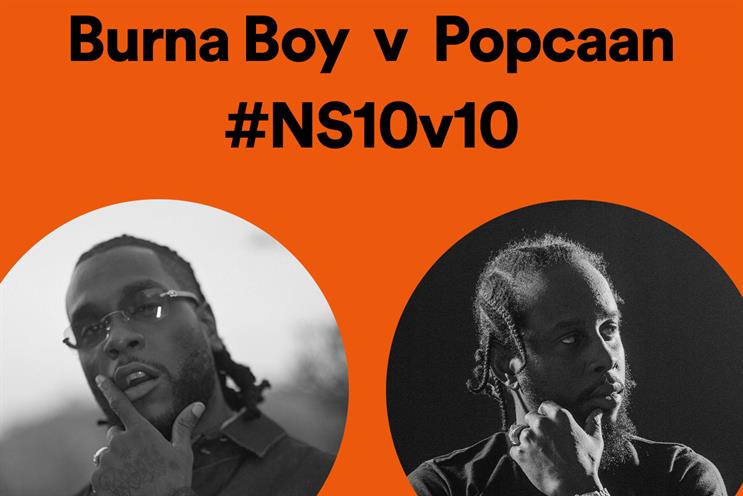The rise in radio listening has been one of the few bright spots since the UK went into lockdown, with broadcasters Bauer Media and Global reporting over the current period. But the shining star of the radio boom hasn’t been one of the usual suspects, such as BBC Radio 6 Music or NTS. Right now, the reigning king of radio is . Haven’t heard of it? Well, you should have.
Taking the simple concept of the sound clash and turning it on its head, No Signal’s frequent battles see the catalogues of treasured favourites, such as Mariah Carey and Beyoncé, go head to head to see who will reign supreme. Its clash on 3 May was arguably a watershed moment for the platform, which had already earned for a previous battle that pitted Burna Boy against Popcaan.
The 3 May clash saw the back catalogues of Wizkid go up against Vybz Kartel, and it was so popular that it broke servers – 670,000 pressed play across 99 countries on No Signal’s website and a further 579,000 pressed play via its YouTube channel. Hashtags, such as the official #NS10v10, were among 16 of the top 20 UK Twitter trends associated with No Signal and the show even caught the attention of Burna Boy and the clash’s subjects, Wizkid and the incarcerated Vybz Kartel. Pretty impressive for a community radio station.
The success of No Signal is indicative of a larger trend. Throughout the period of Covid-19, black Americans across the pond have also engaged with feel-good and nostalgic content. First came D-Nice, who broke Instagram records with his boogie, disco and quiet storm-filled Club Quarantine virtual DJ set, which was attended by everyone from Michelle Obama to Rihanna. Next came Tory Lanez with Quarantine Radio, an impromptu talent contest that attracted the likes of Justin Bieber and Lizzo. Lastly, the Citizen Kane of Instagram-based quarantine entertainment: Verzuz – specifically the battle between R&B producer heavyweights Teddy Riley and Babyface, which further broke Instagram Live records, drawing in 550,000 viewers and a total of three million engagements.
So, what does this prove?
Globally, it’s evident that black people in particular are consistently engaged with organic content. There are no strategists, marketing teams or break-out rooms, just pure, unadulterated fun, created by and for black people. Given that we are one of the communities most adversely affected by the Covid-19 pandemic, we’re doing all we can to face the next day with a smile. Times are hard, and when mainstream media can’t speak to us, we’ll forge our own lane.
No Signal, more than any other platform, has shown the power of grassroots entertainment. It has satisfied a very simple need and listened to a particular consumer sector where mainstream brands fail. It’s simple, authentic and not contrived.
Being black myself, it’s rare to see anything that is created for my community. Things that are part of black culture are often diluted beyond recognition in the creation of "shareable" content. The demand for universal appeal can subsequently undermine representations of the black community.
As is evident from the recent IPA Agency Census – in which only 4.1% of chairpeople are from a BAME background. Notice I said BAME, not black. While this is an improvement from previous years, it’s proof that there aren’t enough black people in decision-making positions to facilitate campaigns that may target black people.
Yet you can’t deny how prevalent black culture is within popular culture, from to every fast-fashion brand and TikToker adopting the language of a 1980s drag ball contestant, constantly yelling: "Yaaasss siss, werk!"
Given the impact that black culture has on popular culture as a whole, there is a distinct lack of attention paid to black people as cultural curators. It’s as simple as talking to us and asking us what we need or want to see. We’re not to be feared – there is strength in numbers and .
With No Signal, the audience is in control, constantly informing the platform of their likes and dislikes, and starting conversations. No Signal is doing what every brand should do: it listens to its audience.
The recipe for success in our current climate and beyond isn’t a science. Content doesn’t need to be convoluted or come with flashing lights. It goes back to what consumers need and enjoy: at the end of the day, we all want to be happy, and this is what No Signal understands and facilitates so well.
Jumi Akinfenwa is a senior music supervisor at Pitch & Sync


